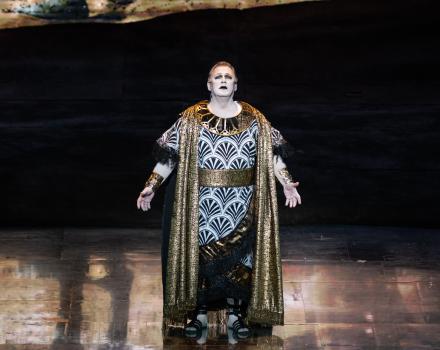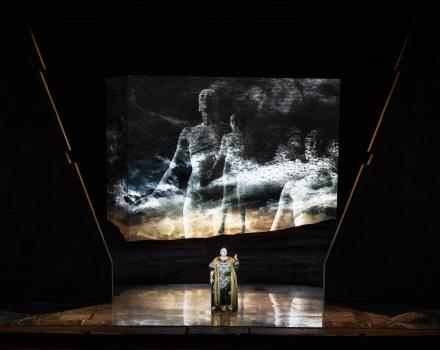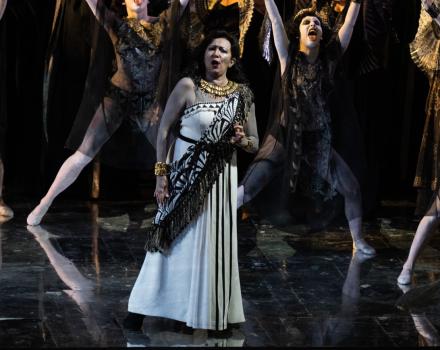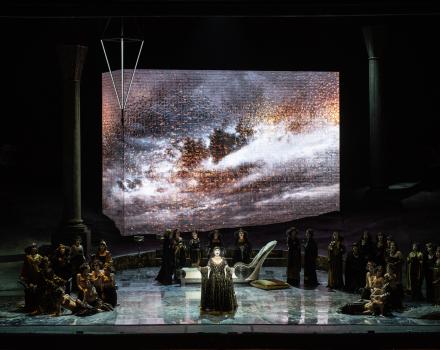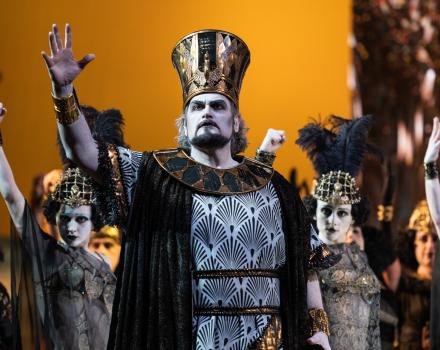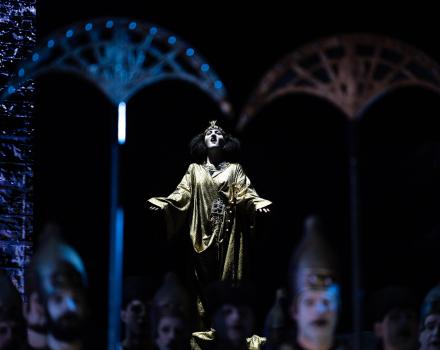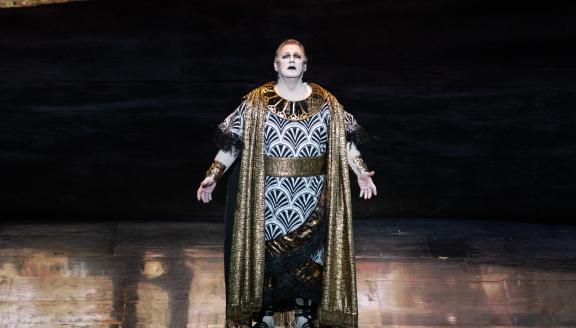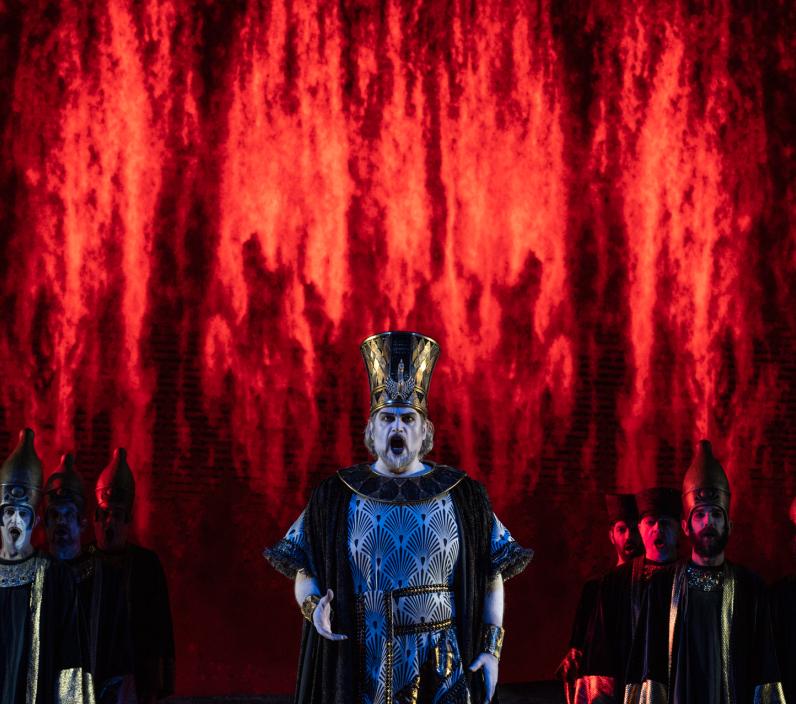
Princess Aida has been kidnapped: a valuable prize in a war between Egypt and Ethiopia. The ambitious soldier Radames wrestles with his feelings for her. As they draw closer together, each must make a painful choice between their loyalty to home, and their love for each other.
With its cast of hundreds, thrilling score, and sweeping tale of love and heroics in ancient Egypt, Verdi’s Aida has long been a fixture on the stages of every major opera house in the world. This new production of Rome combines the colossal and the intimate. For Michele Mariotti, conductor and music director of Teatro dell’Opera di Roma, Verdi’s genius lies in his managing to combine spectacular, triumphal elements with a love story that unfolds far from public space in delicate pianissimi and sotto voce singing. For these elements to exist on stage, Turin-born director Davide Livermore has found inspiration in silent epic cinema of the early twentieth century combined with certain references to Art Deco. Soprano Krassimira Stoyanova takes on the title role with mezzo-soprano Ekaterina Semenchuk as her rival, the conniving princess Amneris. Tenor Gregory Kunde is Radamès, the warrior that both women love, and baritone Vladimir Stoyanov is Aida’s father, the fallen king Amonasro.
CAST
|
Aida
|
Krassimira Stoyanova
|
|---|---|
|
Amneris
|
Ekaterina Semenchuk
|
|
Radamès
|
Gregory Kunde
|
|
Amonasro
|
Vladimir Stoyanov
|
|
Ramfis
|
Riccardo Zanellato
|
|
The King
|
Giorgi Manoshvili
|
|
High Priestess
|
Veronica Marini
|
|
A messenger
|
Carlo Bosi
|
|
Chorus
|
Teatro dell'Opera di Roma Chorus
|
|
Orchestra
|
Teatro dell'Opera di Roma Orchestra
|
| ... | |
|
Music
|
Giuseppe Verdi
|
|---|---|
|
Text
|
Antonio Ghislanzoni
|
|
Conductor
|
Michele Mariotti
|
|
Director
|
Davide Livermore
|
|
Sets
|
Giò Forma
|
|
Lighting
|
Antonio Castro
|
|
Movement director
|
Davide Livermore
|
|
Video
|
D-WOK
|
|
Chorus master
|
Ciro Visco
|
| ... | |
VIDEOS
STORY
Act I
The Ethiopian princess Aida has been captured and enslaved, but her captors do not know of her importance. Radames is a commander in the Egyptian army and is in love with Aida, but also wants to be victorious on the battlefield – Aida’s father, the Ethiopiann King Amonasro, is invading Egypt in order to find and free his daughter. Amneris is in love with Radames but knows that he loves another; she can see it in his face (‘Quale insolita gioia nel tuo sguardo’ / ‘In your looks I trace a joy unwonted’). She notices that when Aida appears, Radames changes, and she figures out that Radames’ love interest is Aida. The King of Egypt enters with the news that Ethiopia is invading. Aida feels conflicted – she loves Radames, but she is loyal to Ethiopia.
Act II
Radames has won the battle, and the crowds celebrate. Aida is cornered by Amneris and told that Radames has died; she reveals her love for him and Amneris is enraged. Aida finds her father Amonasro among the enslaved Ethiopians brought back by Radames and his troops following the battle. She goes to him. They lie to their captors and say that the Ethiopian king was slain in the battle. The Egyptians are none the wiser; all they see is a father and daughter. Radames pleads with his king to let the hostages go free. The king agrees, but keeps Aida and Amonasro hostage.
Act III
Near the temple of the goddess Isis, prayers are said to bless the upcoming wedding of Radames and Amneris ('O tu che sei d'Osiride' / ‘O thou who to Osiris art’). Radames meets Aida secretly and says he will marry her. Amonasro spies on their conversation, and when he reveals himself, Radames feels betrayed. Amneris and the high prist Ramfis see Radames and Aida together. Radames surrenders to arrest, refusing to flee with Aida and Amonasro.
Act IV
Radames refuses to listen to Amneris’s pleas to save himself from prison by denying the charges against him. He is sentenced to death. When he is sealed up in a vault to be buried alive, he finds Aida already there. She had hidden herself in the vault in order to be able to die together with him. They sing a duet (Radamès and Aida: 'La fatal pietra sovra me si chiuse' / ‘The fatal stone now closes over me’). As Amneris weeps in the temple, Aida and Radames die down below.
GALLERY

